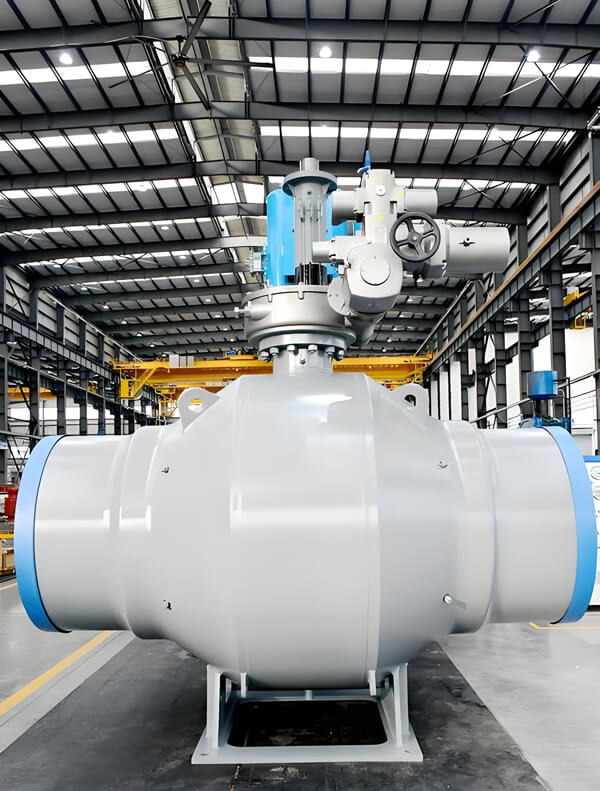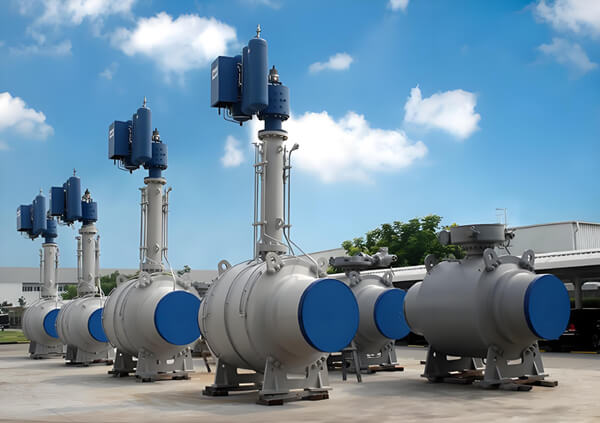Big Size Ball Valves: A Guide to Classification and Manufacturer Selection
Ball valves are critical components in industrial piping systems, designed to control the flow of liquids, gases, or slurries. Their simple yet robust structure—featuring a rotating ball with a bore—ensures reliable shut-off and minimal pressure drop. But when projects demand big size ball valves (typically defined as valves with a diameter of 12 inches/300 mm or larger), selecting the right design and manufacturer becomes crucial. This guide explores the classification of large-diameter ball valves and how to choose a trustworthy supplier.
What Are Big Size Ball Valves
Big size ball valves are heavy-duty valves engineered for high-flow applications in industries like oil and gas, water treatment, power generation, and chemical processing. Their large bore diameters (12–60+ inches) allow them to handle extreme pressures, temperatures, and volumetric demands.
Key Features:
- Robust Construction: Made from materials like stainless steel, carbon steel, or alloy to withstand harsh conditions.
- Advanced Sealing: Resilient seats (e.g., PTFE, metal-to-metal) prevent leaks in high-pressure environments.
- Actuation Options: Manual, pneumatic, hydraulic, or electric actuation for automated control.

Classification of Big Size Ball Valves
Understanding valve types ensures optimal performance for specific applications:
1. By Design
- Floating Ball Valves: The ball is held in place by compression from the valve seats. Ideal for low-to-medium pressure systems.
- Trunnion-Mounted Ball Valves: The ball is anchored by a trunnion shaft, reducing seat wear. Suited for high-pressure, large-scale pipelines.
Note: Big size ball valves are usually trunnion mounted ball valves.
2. By Material
- Stainless Steel: Corrosion-resistant for chemical or marine environments.
- Carbon Steel: Cost-effective for high-pressure oil and gas systems.
- Cryogenic Alloys: Engineered for sub-zero temperatures in LNG applications.
3. By End Connection
- Flanged: Common in large pipelines for easy installation.
- Welded: Provides a permanent, leak-proof seal for critical systems.

How to Choose the Right Big Size Ball Valve Manufacturer
Selecting a reliable manufacturer ensures longevity, safety, and compliance. Here’s what to prioritize:
1. Industry Experience & Reputation
Look for manufacturers with a proven track record in producing large-diameter valves for your sector. Check certifications (e.g., API 6D, ISO 9001) and client testimonials.
2. Customization Capabilities
Large projects often require tailored solutions. Ensure the supplier offers:
- Custom bore sizes, pressure ratings, and materials.
- Specialized coatings (e.g., anti-corrosion, fire-safe).
3. Quality Assurance
Verify that the manufacturer adheres to strict quality control processes, including:
- Non-destructive testing (NDT) for weld integrity.
- Pressure testing to validate performance under extreme conditions.
4. After-Sales Support
Choose a partner that provides technical support, maintenance services, and readily available spare parts.
5. Cost vs. Value
While pricing matters, prioritize long-term value. Cheap valves may save upfront costs but lead to frequent failures and downtime.
Final Thoughts
Big size ball valves are indispensable in industrial systems requiring high flow capacity and durability. By understanding their classification and partnering with an experienced manufacturer, you can ensure operational efficiency and safety. Always prioritize quality certifications, customization options, and post-purchase support when evaluating suppliers.
For more insights on valve selection, explore our technical guides or contact our engineering team for personalized recommendations.
Post time: Apr-15-2025






